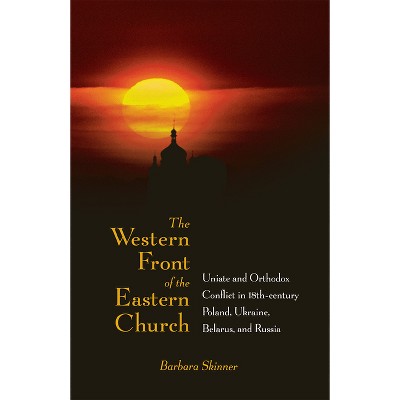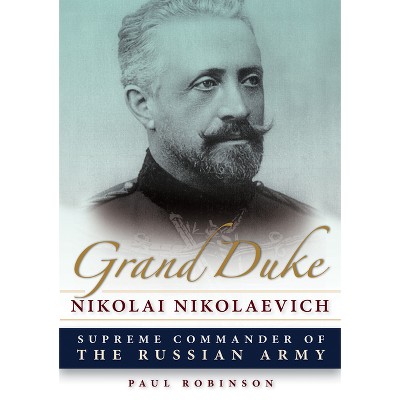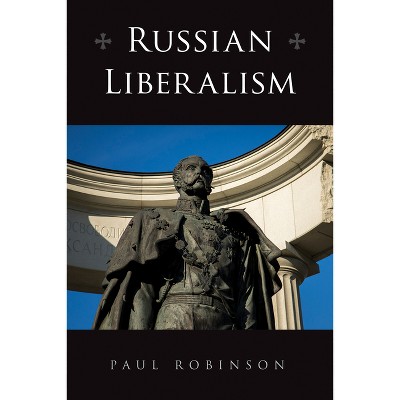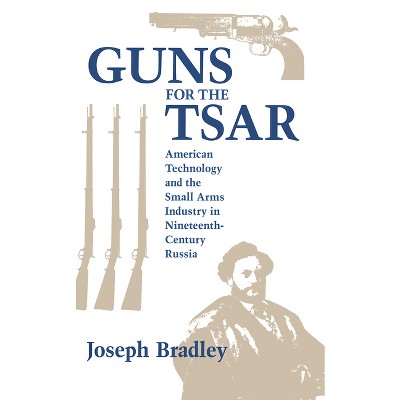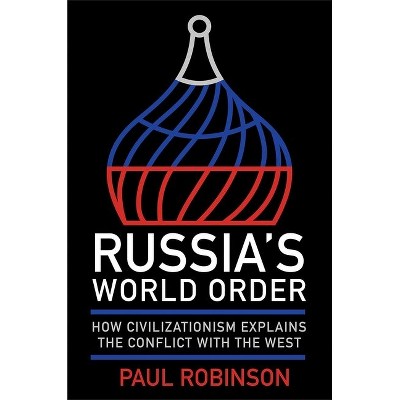Christianizing Crimea - (Niu Slavic, East European, and Eurasian Studies) by Mara Kozelsky (Hardcover)

About this item
Highlights
- In nineteenth-century Russia, religious culture permeated politics at the highest levels, and Orthodox Christian groups--including refugees from the Russo-Ottoman wars as well as the church itself--influenced Russian domestic and foreign policy.
- About the Author: Mara Kozelsky is Assistant Professor in the Department of History at the University of South Alabama and contributing co-editor, with Philip L. Kohl and Nachman Ben-Yehuda, of Selective Remembrances.
- 288 Pages
- Religion + Beliefs, Christianity
- Series Name: Niu Slavic, East European, and Eurasian Studies
Description
About the Book
In 19th-century Russia, religious culture permeated politics at the highest levels, and Orthodox Christian groupsincluding refugees from the Russo-Ottoman wars as well as the church itselfinfluenced Russian domestic and foreign policy. Likewise, Russian policy with the Ottoman Empire inspired the creation of a holy place in...Book Synopsis
In nineteenth-century Russia, religious culture permeated politics at the highest levels, and Orthodox Christian groups--including refugees from the Russo-Ottoman wars as well as the church itself--influenced Russian domestic and foreign policy. Likewise, Russian policy with the Ottoman Empire inspired the creation of a holy place in ethnically and religiously diverse Crimea. Looking to the monastic state of Mount Athos in Greece, Orthodox Church authorities in the mid-1800s attempted to create a monastic community in Crimea, which they called "Russian Athos." The Crimean War catalyzed the Russian Christianization that had begun decades earlier and decimated Crimea's Muslim population. Wartime propaganda portrayed Crimea as the cradle of Russian Christianity, and by the end of the war, the Black Sea Region acquired a Christian identity. The same interplay of religion, politics, and culture has found new ground in Crimea today as its sacred monuments and ruins lie vulnerable to abuse by nationalist groups sparring over the land.
Christianizing Crimea is the first English language work to analyze the Christian renewal in Crimea. Drawing on archives in Odessa, Simferopol, and St. Petersburg that to date have remained untapped by Western scholars, Kozelsky provides both a fascinating case study of past and present religious nationalism in Eastern Europe and an examination of the political conflicts and compromises endemic to holy places. She explores the diverse strategies of church expansion, the importance of Byzantine history and the Greek population, the assimilation of local pagan and Tatar traditions into sacred narratives, the crafting of Russian identity through print culture, and Crimea's re-Christianizing in the post-Soviet era. Kozelsky's unique approach joins the fields of contemporary history, religion, and archaeology to show how Crimea has been reshaped as a holy place. Christianizing Crimea will appeal to both scholars and general readers who are interested in past and current religious and political conflicts.
Review Quotes
A significant study that enhances scholarly understanding of Russian Orthodox nationalism in the nineteenth century... based on an ambitious set of sources, involving a large published record of primary documents, as well as local and central archives.
--Christine D. Worobec, author of PossessedThis book will be of great interest to scholars interested in Russia as empire, in the development and dissemination of Russian Orthodox nationalism in the nineteenth century, and in the relationship between religion and empire in imperial Russia.... Since it deals to such an extent with the building of many of the sightseeing destinations of present-day Crimea, I would also recommend it to visitors to Crimea who seek a deeper understanding of the peninsula and its history more generally.
--Heather J. Coleman "Journal of Ukrainian Studies"About the Author
Mara Kozelsky is Assistant Professor in the Department of History at the University of South Alabama and contributing co-editor, with Philip L. Kohl and Nachman Ben-Yehuda, of Selective Remembrances.






